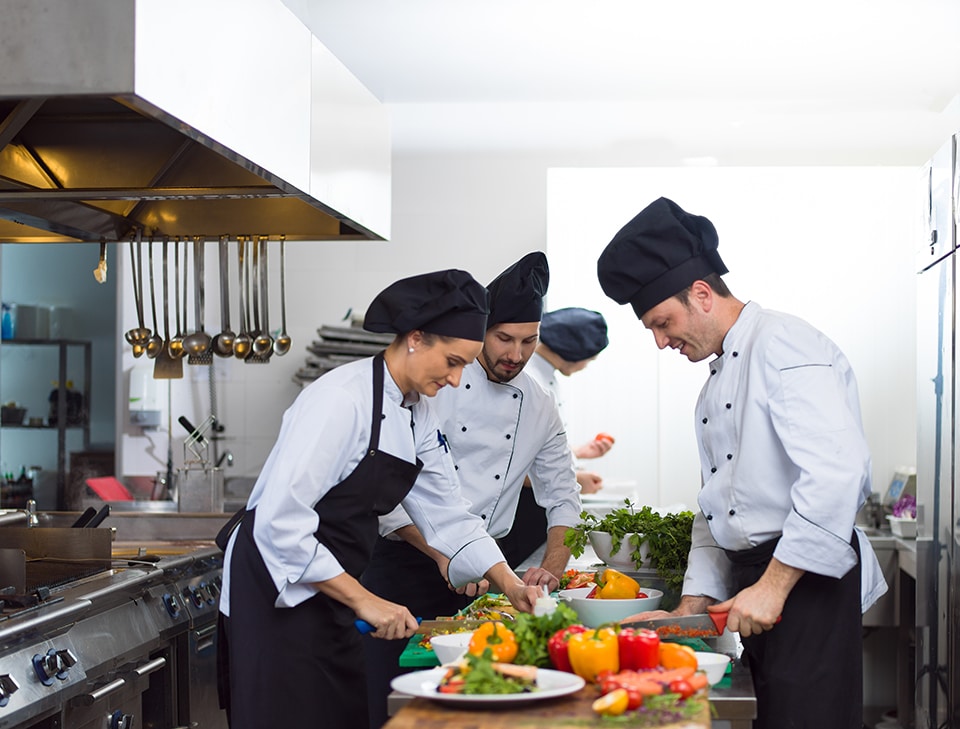My name is Amber. I am a chef and have been in the hospitality industry for about 20 years. I believe that it takes a certain type of personality to become a chef. There is a craving for achievement, a passion for perfection and a desire to go above and beyond. Over my career I have witnessed first-hand how this drive can cause outstanding success but ironically – like a double-edged sword – the consequences can be debilitating.
Two years ago, I hit rock bottom, after many years of alcohol abuse, cleverly hidden from view. It damaged my health, ruined my relationships with boyfriends and family and destroyed my ability to function during everyday tasks without having had a drink.
At that time of my life I was not aware of support services like Lifeline and Beyond Blue and help was certainly not something I asked for. It was beaten into me as an apprentice that you must find a way to do things yourself and that asking for help was weak. This, unfortunately for many chefs (mainly older generations), is still just the way it is – in life – as well as at work.
The hardest thing I found, in getting back on my feet, was telling my chef friends and colleagues. Drinking is so ingrained in the culture of the kitchen that I was faced with encouragement to continue drinking, not the support I needed to stop. Consequently, I had to remove myself from those groups and slowly build the muscle to socialise again. I am so pleased and proud to say that I am strong enough to be around alcohol without having it myself and haven’t done now for two years.
Just after Christmas, my chef mentor and best friend took his own life. He had been in the game for many years, had owned his own restaurant, been in the limelight, had what looked like ‘it all’ but underneath that was obviously not the case. He had been struggling with drug and alcohol dependency since virtually the moment he stepped into the kitchen and that, unfortunately, is the lifestyle you get handed when you enter the cheffing world.
The package deal is a constant on-the-go existence, with busy services and a work hard, play hard mentality. Having to keep the energy up when all signs point to shutting it down. Even on days off it’s a constant search for perfection, where can you get the next best idea, quest for the perfect dish, must impress, gotta get the hats, gotta get the stars, it’s non-stop. I can only imagine its likeness to a battle field, under around-the-clock panic mode. Then, the accepted and encouraged antidote is to uncoil the pain and stress with alcohol or drugs, anything that will numb you for a while so you can take time out. I refer to this package deal chefs receive when putting on their apprentice uniforms as ‘The White Jacket Effect.’
It is unrealistic to expect to reduce the pressure in this unforgiving work environment, but I would like to step up and do something to get the topic talked about and get rid of the ‘push-on’ motto. There is certainly a shift occurring in the younger generations, but it is the older ones such as myself and Richard, that have it ingrained in our make-up.
Chefs are not invincible and I don’t want to see another brilliant life be wasted. Therefore, I am hosting the first ever White Jacket Effect Workshop in a few weeks time with 20 – 30 of my chef friends and colleagues. There will be speakers from RUOK?, Hello Sunday Morning and The Red Cross to talk about the resources and support available to people who were in the same situation as me. These guys and girls who are in the kitchen, day in and day out, will discuss the heavy topics and nut out some positive solutions together.
My vision is to develop communicative, ‘Safe House Leaders’ in the cheffing community, who are keen to:
- abolish suffering in silence
- address ‘balance’ and encourage health and wellness
- start conversations about how to have a healthy relationship with alcohol.
I am committed to taking action to cause change in the culture of the kitchen and to redefine what it means to put on that white jacket.
Lifeline Australia: 24/7 crisis support and suicide prevention services. Call 13 11 14 or visit www.lifeline.org.au
